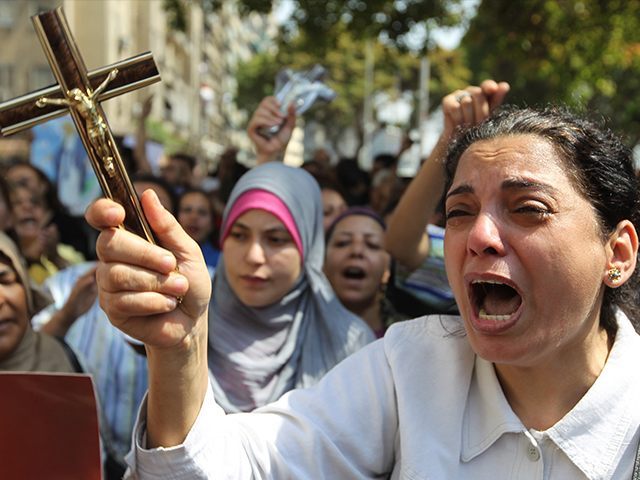TEL AVIV – Elements of the Egyptian press are slamming the country’s supreme religious authority, Al Azhar institutions, for continuing to cultivate extremism despite the authority’s claim that it welcomes President Abdel Fattah el-Sisi’s call for a religious revolution to combat extremist Islamist ideology.
Egypt’s official daily Al Ahram ran a column by Ahmad Abd Al-Tawab who claimed that the recent wave of attacks against the country’s Coptic community were the result of the Al Azhar authority’s extremist curricula.
Al-Tawab lamented that taxpayer funds are being used for Al Azhar universities’ “poisonous curricula” so that ultimately “society pays to train, educate and cultivate a group [of graduates] that hates society and is hostile to it and attacks it as it pleases!” he wrote in the article translated by the Middle East Media Research Institute (MEMRI).
Al-Tawab goes on to say that anyone who dares to question Al Azhar is attacked with accusations of heresy and some even end up behind bars.
In a second, equally harsh, article, Al-Tawab addresses the uniform sermon crisis, claiming that Al-Azhar has done everything to sabotage the cause despite its proclamations of support.
The sermon policy, introduced by Egypt’s Ministry of Religious Endowments, called for uniform Friday sermons in ministry-funded mosques across the country that would require preachers to deliver a prepared sermon provided to them by the ministry.
The initiative was part of Sisi’s strategy to combat extremist Islamic ideology and to stop sermons from dealing with political matters. However, the initiative sparked fiery resistance from Al-Azhar, which claimed it ran contrary to Islamic practice.
Since Al-Azhar is a crucial support base for Sisi, the president ultimately acquiesced and intervened on the authority’s behalf. The Minister of Religious Endowments, Mohamed Mokhtar Gomaa, backtracked and according to MEMRI, said his ministry would not be providing sermons but would only determine the topic of the sermons and its length.
Al-Tawab slammed the developments, saying that while “Al Azhar’s clerics were quick to welcome the president’s call for a [religious] revolution, it was never translated into action on the ground.”
On the contrary, writes Al-Tawab, Al Azhar has instead “mercilessly attacked anyone with a differing opinion without hesitating to use the weapon of accusations of heresy, or to file lawsuits that placed several people behind bars.”
Al-Tawab claimed that Egypt desperately needs to “institute a constitution that lays the foundations for a modern state” which would include defending freedoms, including “freedom of worship, of scientific research, of literary and artistic creativity,” and by strengthening the country’s ties with other nations.
The columnist says that efforts to combat religious extremist ideology on the internet are futile since they are treating the symptoms without addressing the cause.
Instead, he claims, the country needs to invest its resources into reforming education curricula “that still contains horrifying expressions” of extremism, as well as to purge the country of extremists in senior positions of authority.
The country also needs to find ways to improve teachers by “adapting them to the spirit of the times” and to enforce state law in incidents of conflict, such as with the Coptic community, instead of allowing traditional Islamic law to handle such incidents.

COMMENTS
Please let us know if you're having issues with commenting.